7 Great Science Fiction Movies That Deserved Best Picture Nominations
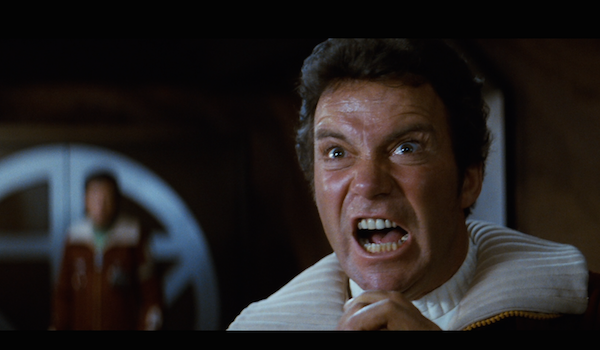
Your Daily Blend of Entertainment News
You are now subscribed
Your newsletter sign-up was successful
When something’s great, you just know it. It’s indisputable (well, almost). In film, there’s the convergence of great writing, a stellar cast, pitch perfect direction, moving score. What’s left is a kind of general consensus. So, why are science fiction movies snubbed for Best Picture nominations?
The simplest answer is perception. Oscar-nominated movies are almost always purely dramatic fair. You won’t find a spaceship, rarely any time travel elements, or monsters. Speculative fiction just doesn’t tend to make the final cut. Best Picture nominations are usually very serious, sometimes period pieces, biopics, anything but science fiction, or fantasy for that matter. It’s been well over a decade since Peter Jackson won Best Picture for Return of the King (the final installment of The Lord of the Rings trilogy).
This year, Christopher Nolan’s ambitious mindbender, Interstellar, wasn’t nominated for a Best Picture Oscar, extending the streak of non-sci-fi winners. The Academy voters have rarely gone where no one has gone before with their choices. When a film as moving intellectually and emotionally as 1997’s Contact (starring Jodie Foster) only garners a nomination for Best Sound, something’s terribly wrong with the system. But there have been films that really should have got at least an Oscar nod, regardless of genre. Here’s at least seven films worth noting.
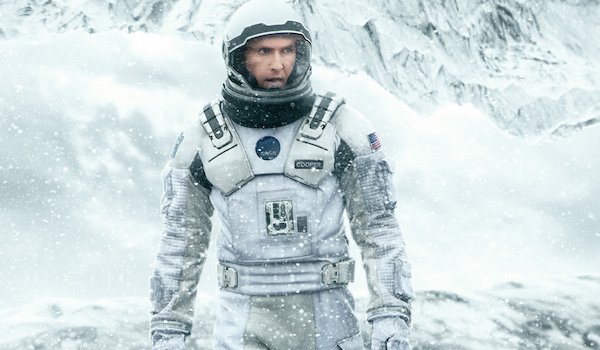
Interstellar (2014)
Director Christopher Nolan’s follow-up to The Dark Knight Rises, Interstellar was unlike anything else in 2014. It was a science fiction movie with almost as much heart as theoretical physics. The story of Cooper (Matthew McConaughey) and his family – particularly his relationship with his daughter – is just as dramatic as anything on the current list of Oscar nominees. The Theory of Everything has a physicist as its lead character (Dr. Stephen Hawking), but it’s a straight-ahead drama. Interstellar takes a different route. Yes, on the surface it’s a near future tale about the human race running out of time before the earth no longer sustains it. That’s just the hook. There’s so much more to the story than traveling into space, or the exploration of black holes. But Interstellar is only up for sound editing, sound mixing, and the music score (by the talented Mr. Hans Zimmer). It makes the case that anything genre, or science fiction for that matter, doesn’t stand much of a chance for a Best Picture Oscar.
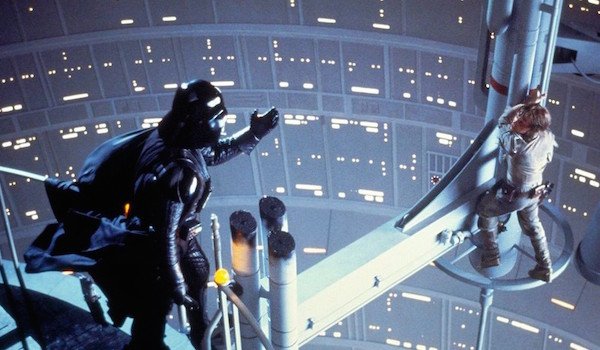
The Empire Strikes Back (1980)
The 1981 Academy Awards ended up being the year of Ordinary People. Have you seen it recently? Is it on your top-10 list of your favorite movies? The film was directed by Robert Redford and starred Donald Sutherland, Mary Tyler Moore and Judd Hirsch. Irvin Kershner directed The Empire Strikes Back, which starred Mark Hamill, Harrison Ford and Carrie Fisher. You also had a script from Leigh Brackett (The Big Sleep) and Lawrence Kasdan (Raiders of the Lost Ark, The Force Awakens). And it’s not like the movie didn’t garner any Academy Awards. It won the Best Sound Award and a "Special Achievement Award" for special effects. But here’s the thing, The Empire Strikes Back sent ripples through the popular culture zeitgeist. John Williams’s masterful score was defeated by Michael Gore’s soundtrack to Fame. If the criteria for Best Picture is a combination of cinema magic that stretches across generations, then Empire should have gotten a nomination. It’s not only the best movie in the series, but one of the best movies – ever.
Your Daily Blend of Entertainment News
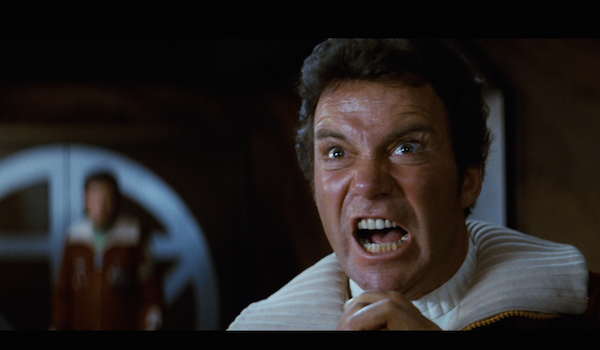
Star Trek II: The Wrath of Khan (1982)
It was the Star Trek movie that really felt like Star Trek, unlike the first film’s 2001: A Space Odyssey vibe. Star Trek II: The Wrath of Khan, like Empire Strikes Back, before it managed to be a movie that surpassed the original, and a had some serious crossover appeal. This was the one you showed that friend that really wasn’t into Star Trek. The TV series is an acquired taste for most. These days, you simply pull out J.J. Abrams’s 2009 reboot. But before that, Star Trek II: The Wrath of Khan showed filmmakers and movie audiences how it was supposed to be done. If the movie was set on terra firma, perhaps with navel vessels and all those perfect allusions to Herman Melville’s Moby Dick, maybe it would have stood an Oscar chance. Wrath of Khan was treated like any other science fiction movie. Too bad.
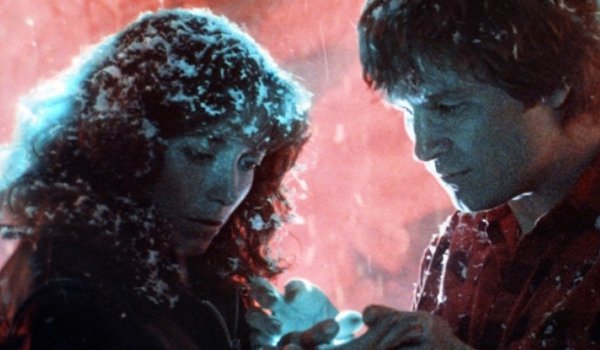
Starman (1984)
John Carpenter’s tale of an alien come to live with us (in the form of a man) didn’t get an Oscar nomination. Amadeus won – and for good reason. But Starman deserved recognition. It’s an incredible film and still has relevance today. Jeff Bridges gives a great performance, as well as Karen Allen. Carpenter’s never been this emotional or optimistic. The Thing, Big Trouble in Little China, Halloween, Escape from New York, and Assault on Precinct 13 were groundbreaking movie classics. But Starman should have delivered Carpenter a little Oscar gold. It’s the type of film a sci-fi geek and a lover of pure drama can embrace.
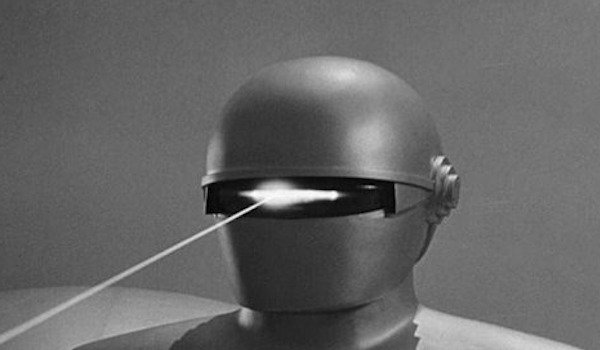
The Day the Earth Stood Still (1951)
Not to be confused with the 2008 remake starring Keanu Reeves, the original The Day the Earth Stood Still was a cautionary tale of what might happen if an alien race gives an ultimatum to the human race to get our act together. Get along. Stop making wars already. It was a movie with ray guns and a spaceship, though it rose above the constraints of 1950s sci-fi. Bernard Herrmann’s score was nominated for an Oscar. Ironically, The Day the Earth Stood Still managed a Global Globe Award in the category of "Best Film Promoting International Understanding." Nice nod to the film’s socially relevant message, however, it would have been truly groundbreaking if the film had been nominated for Best Picture in 1952.
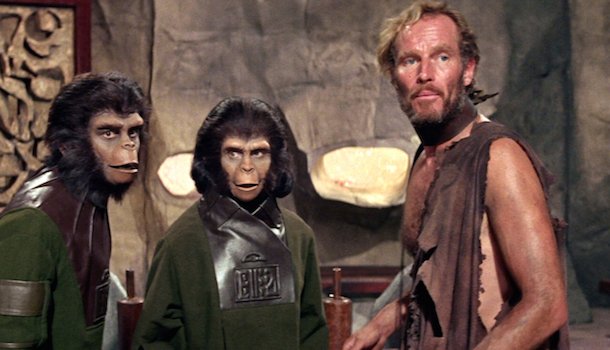
Planet of the Apes (1968)
Lots of great movies this year. But Charlton Heston’s film had something different going for it. Co-scripted by Twilight Zone mastermind Rod Serling from the novel by Pierre Boulle, Planet of the Apes has Serling’s trademark allegorical touch and a heck of a twist ending. Stanley Kubrick’s 2001: A Space Odyssey took the award for Best Effects. Oliver! won the Best Picture award. Granted, the previous year saw such entries as Bonnie and Clyde, The Graduate, Guess Who’s Coming to Dinner?, and Doctor Doolittle as Oscar nominees. In the Heat of the Night deservedly won. Kubrick’s masterpiece should have garnered a Best Picture nomination, too. However, it was probably too trippy for Academy voters to wrap their heads around. Planet of the Apes would have stood a better chance, as it’s essentially a straight-ahead drama (talking apes aside). The film wasn’t completed overlooked, as Jerry Goldsmith’s score was nominated for an Oscar. Planet of the Apes did manage an honorary award for "Outstanding Make-up Achievement in a Movie." Not bad.
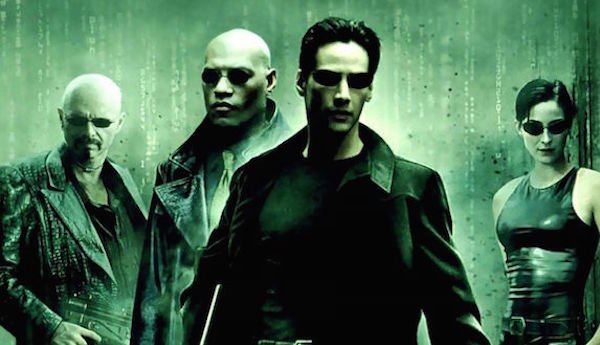
The Matrix (1999)
In 1999, Shakespeare in Love took the Best Picture award home. The following year, Saving Private Ryan, Life is Beautiful, The Thin Red Line, and Elizabeth all got nominations. American Beauty won the award. Great film. Great script. Kevin Spacey. What a winning combination. But the one that blew everyone’s mind, and had that Star Wars effect on cinema -- and by that I mean, everything sort of changed after it existed -- was The Matrix. With its live action Anime approach, Hong Kong martial arts, a philosophical deepness, and an entirely new way to look at movies, The Matrix was the Best Picture of 1999. And by those standards it should have gotten a Best Picture nomination. Doesn’t innovation count for anything? The film went on to win the obligatory technical awards (Best Film Editing, Best Sound, Best Effects, Sound Effects Editing, Best Effects, Visual Effects), and influenced a new generation of filmmakers.
